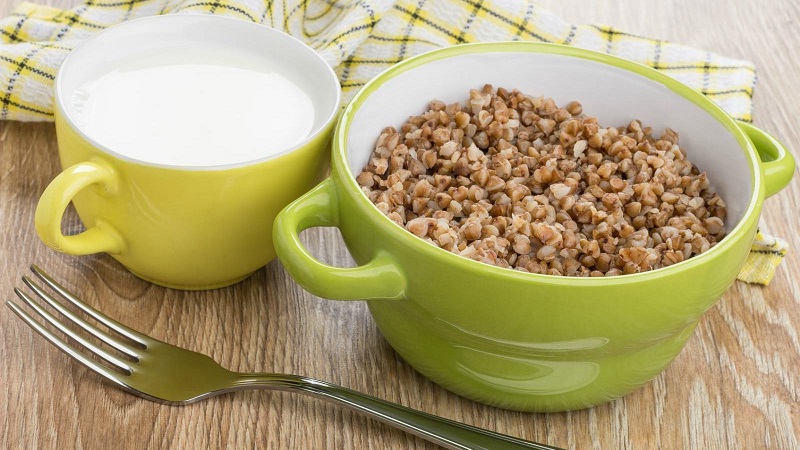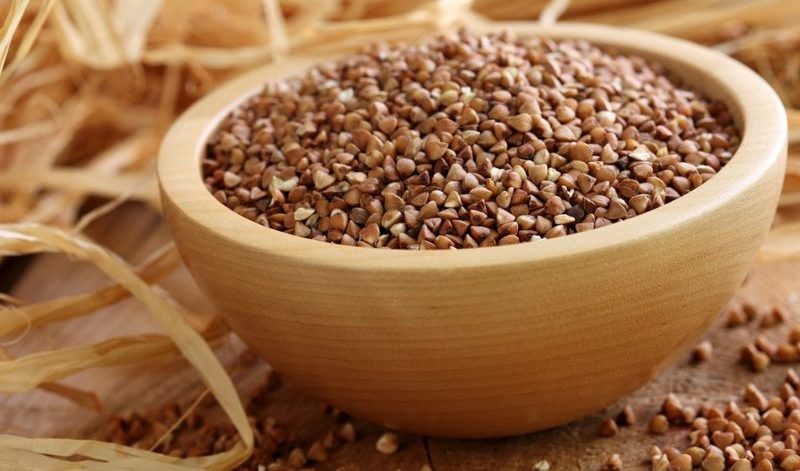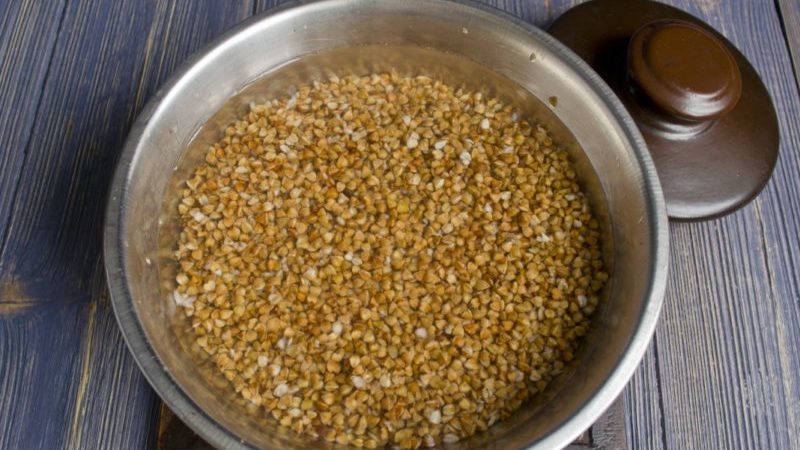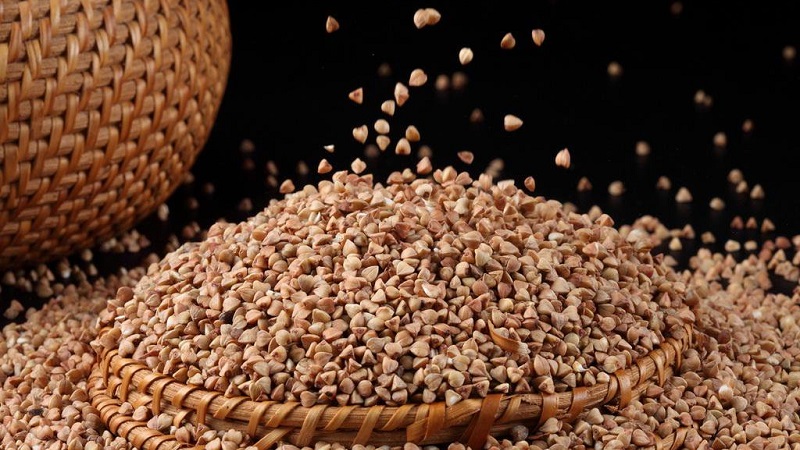How buckwheat affects the blood: thickens or liquefies, and can it be eaten with high cholesterol
Buckwheat is a product familiar and loved by many since childhood. It contains fiber, many vitamins and minerals, gives you fullness and energy for the whole day. Groats are recommended to be included in the diet of nutritionists and nutritionists. However, for some, the use of buckwheat worsens their health and leads to exacerbation of diseases. Let's figure out whether cereals are good for those who have high cholesterol, thicken their blood or not.
The content of the article
Why is thickened blood dangerous?
Blood is the body's transport system that delivers oxygen and nutrients to all tissues and organs, collects toxins and brings them to natural filters.
A decrease in the amount of the liquid part - plasma - and an increase in the number of blood cells, that is, thickening of the blood, leads to a number of adverse and even dangerous consequences:
- Thrombus - a blood clot that forms on the vessel wall. Over time, it grows, hardens and leads to poor circulation.
- Hypoxia - a disorder associated with starvation of organs and tissues that are malnourished due to slow blood flow.
- Kidney problems, hypertension. Thick blood creates unnecessary pressure in the area of the kidney filter, to which the body reacts by increasing the pressure in the vessels to improve filtration.
- Heart attack, angina pectoris. It is difficult for the heart to cope with pumping thick blood, its oxygen supply is significantly impaired. All this leads to premature wear of the organ.
- Thromboembolism - blockage of a vessel (more often a pulmonary artery) by a thrombus that has come off from the place of occurrence.
Who and why needs to liquefy it
Thickening of the blood requires health monitoring and nutritional correction. First of all, the risk group includes:
- Aged people. Due to their age, they are more prone to blood thickening than others, and it is much more difficult for the organs to cope with the increased load. This leads to the formation of blood clots, vascular atherosclerosis, heart attack and stroke.
- People who smoke or drink alcohol... These bad habits lead to vasoconstriction, increased blood viscosity, impaired elimination of toxins and oxygen starvation.
- Those taking hormonal or diuretic drugs... Due to the pharmacological action, some drugs increase the density of the blood, therefore they are used only under the supervision of a doctor, with the obligatory inclusion of a number of procedures to thin it.
- Persons with impaired liver function or a change in the cell membranes of erythrocytes, platelets.
Why high cholesterol is dangerous
Cholesterol deposits on the walls of blood vessels and clogs them. As a result, blood circulation is disturbed, blood clots occur. Cholesterol plaques detach from the walls of blood vessels, move along them along with the blood flow, clog large arteries.
Together with proteins, cholesterol forms complex compounds - lipoproteins, one of the groups of which (low density lipoproteins, LDL) is called bad cholesterol. Many people mistakenly believe that LDL causes stroke, heart attack and atherosclerosis, but recent studies show that this is just one of the risk factors for such diseases, along with bad habits, obesity, diabetes.
Read also:
Buckwheat thickens or thinns the blood

It is not for nothing that buckwheat is called the queen of cereals. It is unpretentious in cultivation and gives a bountiful harvest without fertilization. Cooking porridge is very easy, and it goes well with most products: dried fruits, fresh fruits, milk, meat, nuts, vegetables, mushrooms.
Important! When growing a crop, no pesticides are used, since it is not afraid of weeds. Groats are one of the most environmentally friendly products.
Does buckwheat thicken blood? The myth about this is due to the fact that some plants from the family Buckwheat (in particular, Knotweed) contain the glycoside polygiperine. It increases blood viscosity and stops bleeding. There is no such component in buckwheat.
Groats contain vitamins useful for blood formation group B and the flavonoid rutin. They strengthen blood vessels and improve their elasticity. The use of buckwheat porridge has a beneficial effect on the quality of the blood itself due to the high iron content (55% of the daily value of 100 g).
How buckwheat affects blood cholesterol
Experts recommend paying attention to buckwheat for people with high cholesterol. It contains fiber (56% of the norm), which passes through the intestines and absorbs toxins, part of bile acids and cholesterol from food, preventing them from being absorbed by the body.
Buckwheat lowers sugar and cholesterol levels, dilates blood vessels, and reduces blood viscosity. It is useful for atherosclerosis, heart and vascular problems.
Is buckwheat allowed with high cholesterol and thick blood

When treating excessively thick blood and high cholesterol, the doctor not only prescribes certain medications, but also gives recommendations on lifestyle changes. This includes moderate exercise, avoiding bad habits, and eating healthy. Many of the patients are interested in whether it is possible to eat buckwheat and in what quantity.
How buckwheat affects blood
Regular consumption of cereals is indicated with increased blood viscosity and an increase in cholesterol levels. Rutin in the product improves elasticity and reduces vascular permeability. Iron affects the quality of blood, increases hemoglobin, and reduces the risk of oxygen starvation.
Buckwheat helps to get rid of excess cholesterol due to beta-sitosterol. It is a plant substance that combines with cholesterol and removes it along with insoluble dietary fiber from the body. Due to the high content of vitamin E (32% of the norm), the product improves the elasticity of blood vessels, prevents the formation of plaques and the appearance of atherosclerosis.
How to cook it without harm to health

Groats lose their healing properties during prolonged heat treatment. After cooking for 20 minutes or more, most of the vitamins are destroyed, although even in this case, fiber and some minerals remain.
The optimal cooking time is 5 minutes, after which the buckwheat is infused for about an hour, wrapped in a towel to keep warm. To save all the nutrients, the selected and washed cereals are placed in a saucepan with thick walls, poured with boiling milk or water and left under a warm blanket for 2-3 hours.
Use for high cholesterol and buckwheat with kefir or drinking yogurt. Such a dish is not heated, but insisted for about a day. It is better to eat cereals without sugar and with a little salt.
Read also:
How to eat buckwheat in case of poisoning and can it cause it
Possible harm and contraindications

The great healer of antiquity Paracelsus said: “Everything is poison, everything is a medicine; both are determined by the dose. " The use of cereals should be moderate; it is better to alternate it with other healthy foods.
Important! The consumption of buckwheat more than 150-200 g per day contributes to the disorder of the intestines, which minimizes its beneficial properties.
Groats are contraindicated for people with individual intolerance or allergies.Grain is temporarily excluded from the diet in case of problems in the work of the stomach or intestines, since buckwheat contains a lot of dietary fiber, which causes severe gas formation and even diarrhea.
Conclusion
Buckwheat alone is not enough to treat high cholesterol and blood thickening. This is just one component of the diet. It is important to follow the rest of the dietary recommendations, give up alcohol and smoking, eat fatty foods, drink as much water as possible, and exercise moderately. Seeing a doctor will allow you to choose the right treatment tactics, and the use of buckwheat will help on the way to recovery.